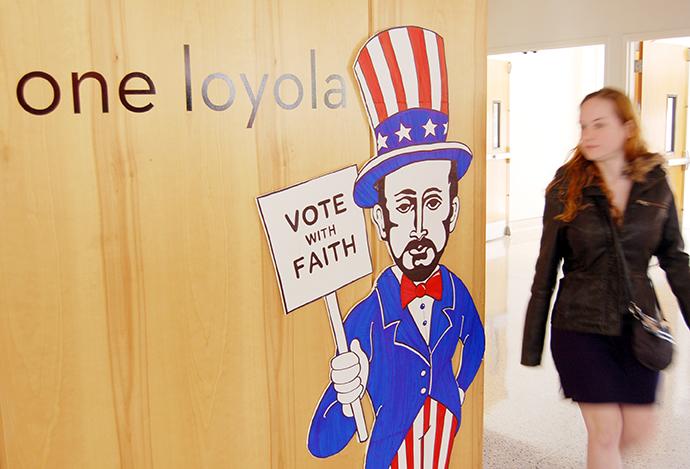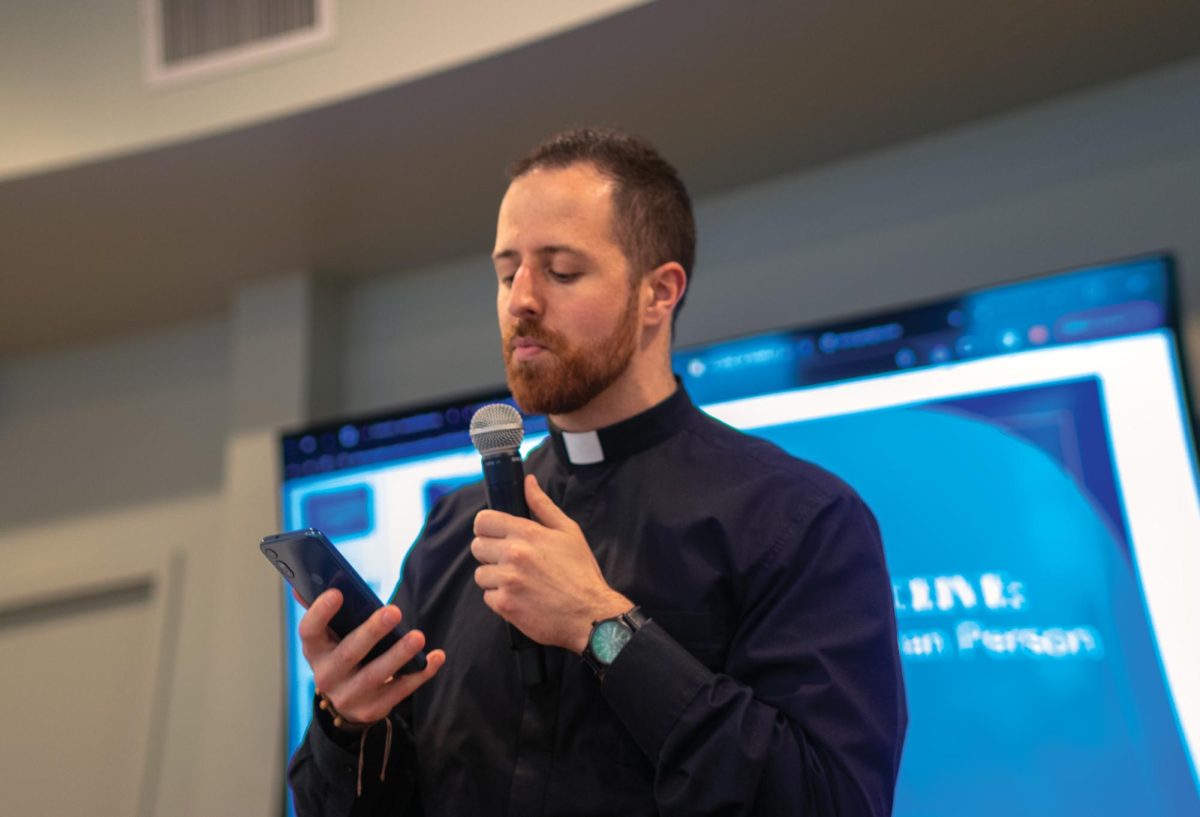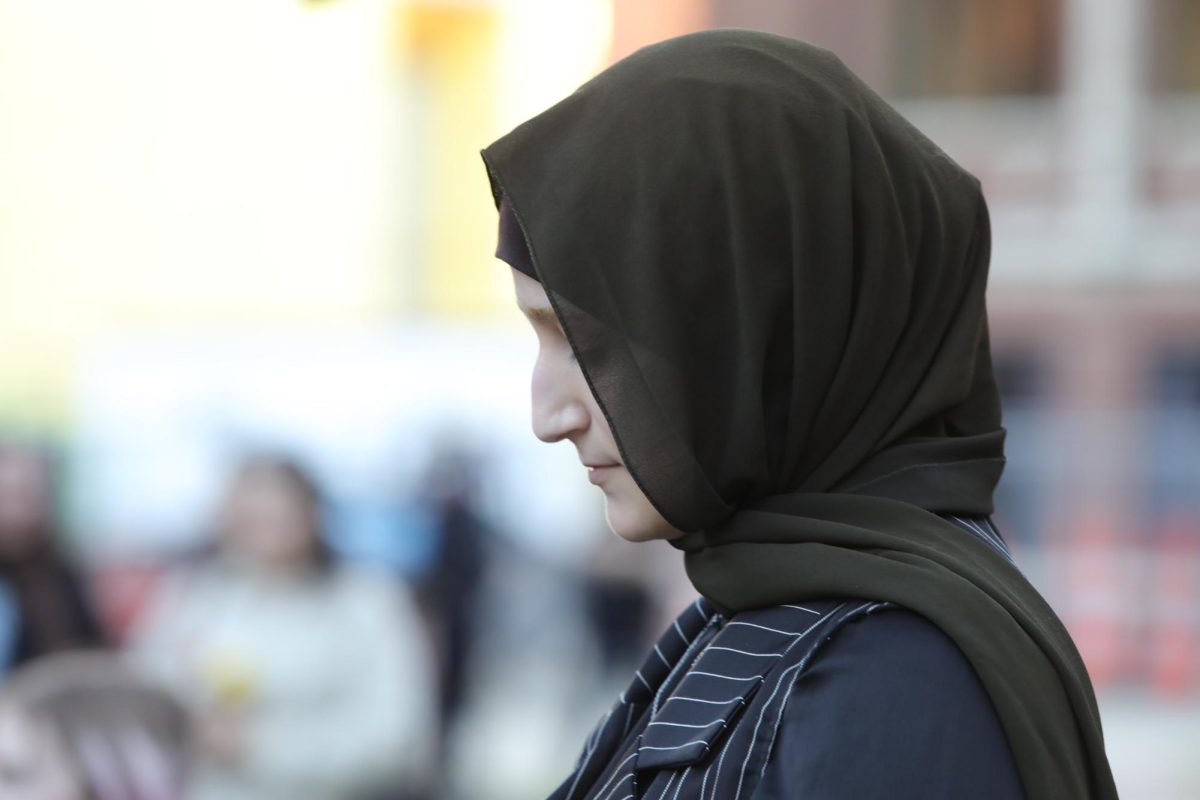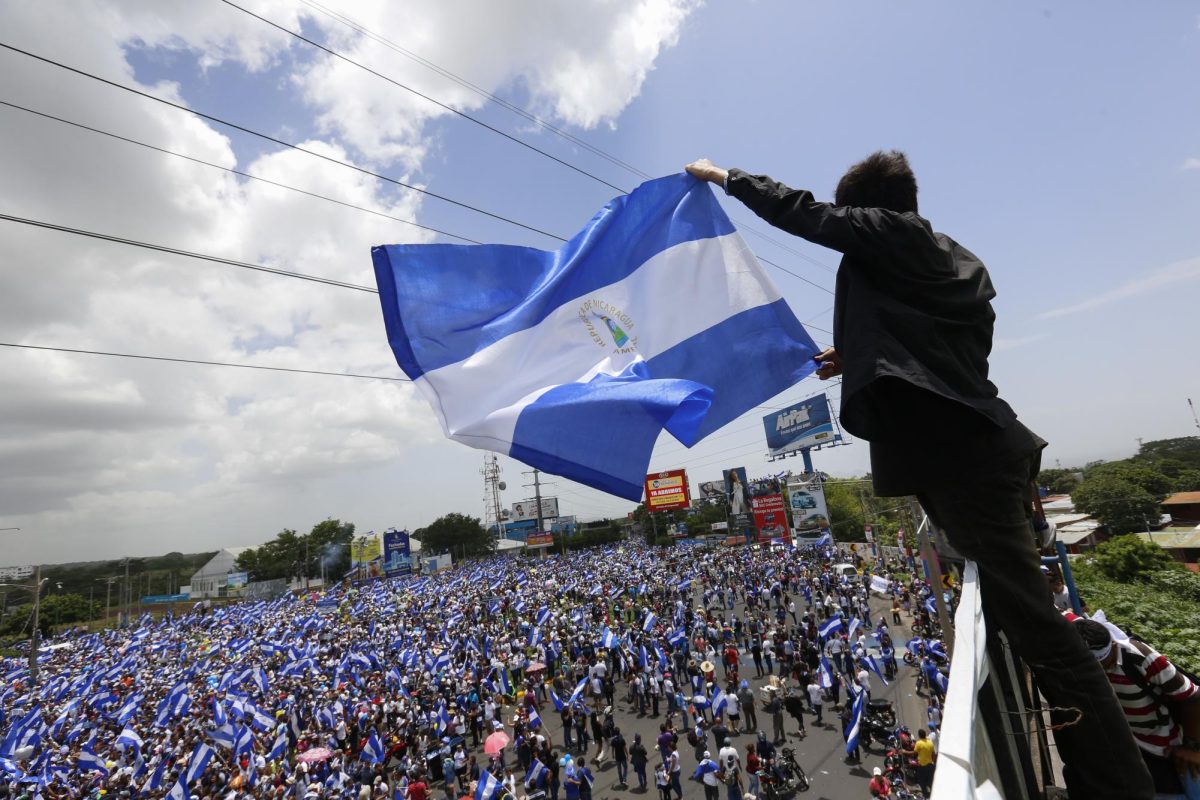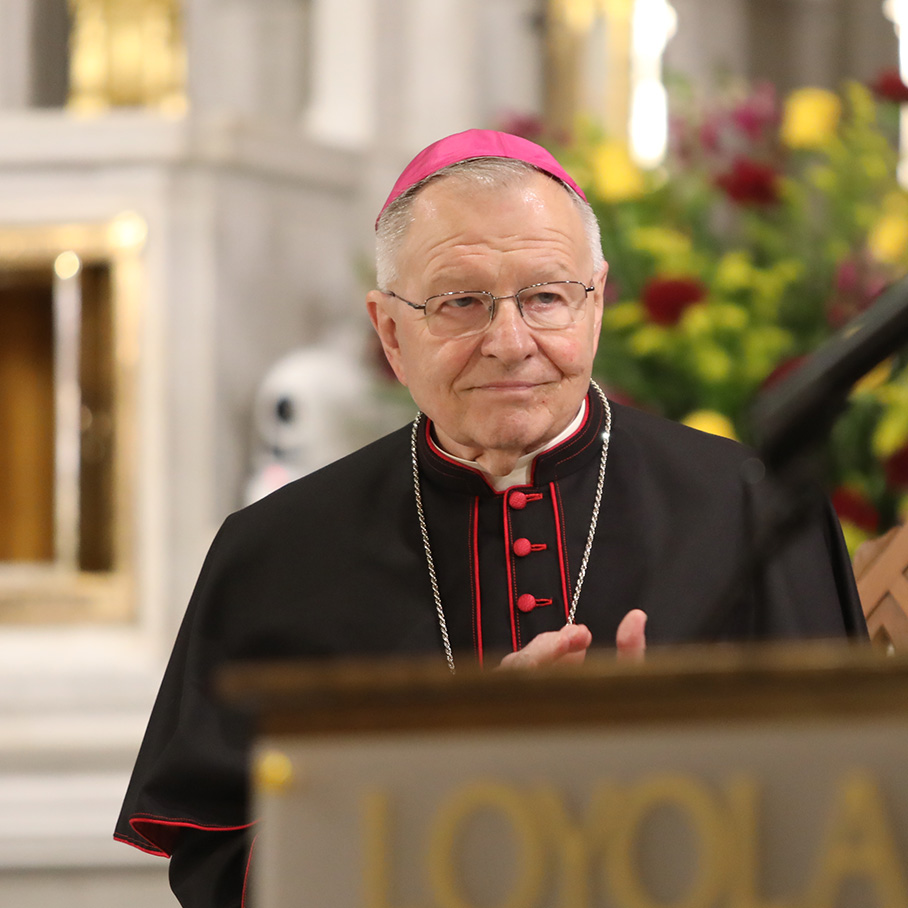The Loyola Office of Mission and Ministry recently weighed in on the presidential election with a presentation about what faithful citizenship is and why it is important to vote with a well- formed conscience.
Kurt Bindewald, director of University Ministry, believed clarifying the misperception that the Catholic Church tries to tell people who to vote for is important. The Catholic Church does not tell anybody how to vote or who to vote for. However, the church does believe voters should be cognizant of all the issues and understand the bigger picture before voting with a fully formed conscience.
“Our main goal is to help people realize that faith is important as a part of who a person is, and the Catholic Church is very clear that a person should be relying on his or her well-formed conscience to make an informed choice. Most times, this means looking at the whole picture, not just simply basing a vote on one single issue,” Bindewald said.
“Because life and society are so complicated, our vote can’t be simplified just to one or two issues, we have to look at the whole picture and base our decision on a well-formed, prayerful conscience,” Bindewald added.
For a few days, the One Loyola room in the Danna Center displayed videos and passed out information on the intertwining of religion and politics.
Kurt Bindewald, director of University Ministry, coordinated with the Office of Co-Curricular Programs to set up the One Loyola room.
The display in the Danna Center portrayed St. Ignatius Loyola dressed up as Uncle Sam, calling on students to vote. The room was set up with a presentation explaining that voting is a moral obligation and also a mandatory duty as a Catholic.
The presentation displayed ike Archbishop Gregory Aymond, who reminded individuals not to be discouraged from voting because of apathy about complex issues. Another key message was that even though the presidential candidates may not embody all the values individuals deem as important, it is still imperative to vote for the person considered to bring about the utmost good for society.
A series of articles included in the presentation focused on key themes that may inform voters’ choices. The articles outlined what bishops considered six pressing national issues and why it is important to avoid being apathetic towards voting and to consider issues equally and thoroughly before casting a vote. The articles were meant to help students understand how their faith may guide them when participating in the political process.
Many students of different denominations enjoyed the display in the One Loyola Room.
Jessica Mixon, music studies junior, appreciated the display and considered Loyola’s Office of Mission and Ministry efforts excellent. Mixon felt it challenged Catholics to maintain their religious beliefs when voting and challenged people to choose the candidate that would enhance their religion.
Mixon is a registered voter and plans to vote in the upcoming election and said being a Christian does affect who she votes for.
“I believe that as a Christian, we should be voting for the candidate who best resembles what Jesus would do for his people if he were president,” Mixon said.
Jessica Thomas, English sophomore, voted early. Thomas believes religion and politics are undoubtedly intertwined; she found the faithful citizenship display in the Danna Center to be a very helpful tool in not only encouraging students to vote, but also in providing clarity for many students that felt unsure for
whom to vote in this election.
“I think the sponsors of this project did a really good job of creating a neutral, informative, student-friendly display,” said
Thomas.
Many students of different faiths were curious about the display, but after visiting it they understood its purpose and appreciated Loyola’s efforts. For some students it clarified the Catholic Church’s stance on issues including human life and marriage.
“I think it is a great tool to help students understand the importance of voting and the importance of choosing the candidate that would best serve the student, while not favoring or promoting one candidate over another,” Thomas added.
Visitors from other universities across the country also experienced the faithful citizenship display. Sue White, vice president for student life at Gonzaga University in Washington, appreciated the message the display sent and how it relates to Jesuit values.
“What you’ve done here is
something that I would like to look at more closely and see if it’s something we might want to duplicate more closely at Gonzaga,” White said.
“How this display has defined the Jesuit values and what it means to be Jesuit in the tradition of learning is something we all have a common mission for, and if we could do something like this at our institution I think it would be wonderful for the students,” White said.
Nhi Tieu can be reached at [email protected]


